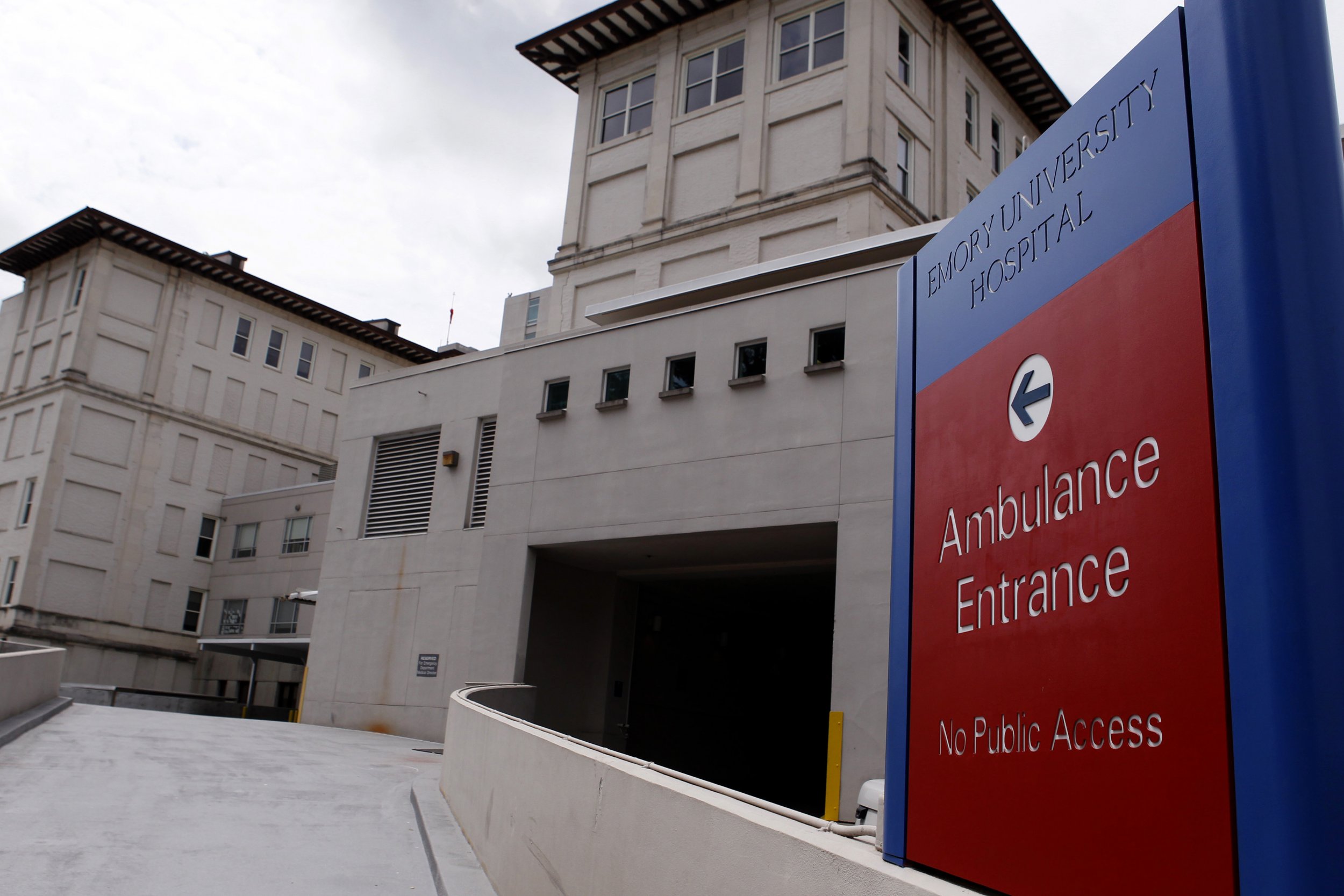
ATLANTA (Reuters) - An American doctor stricken with the deadly Ebola virus while in Liberia and brought to the United States for treatment in a special isolation ward is improving, the top U.S. health official said on Sunday.
Dr Kent Brantly, a 33-year-old father of two young children, was able to walk with help from an ambulance after he was flown on Saturday to Atlanta, where he was being treated by infectious disease specialists at Emory University Hospital.
"It's encouraging that he seems to be improving - that's really important - and we're hoping he'll continue to improve," Dr. Tom Frieden, director of the U.S. Centers for Disease Control in Atlanta, said on CBS's "Face the Nation."
Frieden told the program it was too soon to predict whether Brantly would survive, and a hospital spokesman later said Emory did not expect to provide any updates on the doctor's condition on Sunday.
Brantly, who works for the North Carolina-based Christian organization Samaritan's Purse, had been inLiberia responding to the worst Ebola outbreak on record when he contracted the disease. Since February, more than 700 people in West Africa have died from the infection.
Ebola is a hemorrhagic virus with a death rate of up to 90 percent of those infected. The fatality rate in the current epidemic is about 60 percent.
A second U.S. aid worker who contracted Ebola alongside Brantly, missionary Nancy Writebol, will be brought to the United States on a later flight as the medical aircraft is equipped to carry only one patient at a time.
Standard treatment is to provide supportive care. In Atlanta, doctors will try to maintain blood pressure and support breathing, with a respirator if needed, or provide dialysis if patients experience kidney failure, as some Ebola sufferers do.
SECOND MISSIONARY EXPECTED SOON
Officials have said that Writebol, a 59-year-old mother of two who worked to decontaminate those entering and leaving an Ebola isolation unit in Liberia, was expected to arrive this week in Atlanta. Emory said she was not expected on Sunday.
Writebol's husband, David, who had been living and working in Liberia with his wife, was expected to travel home separately within the next few days, their missionary organization, SIM USA, said in a statement.
Despite public concern over bringing in Ebola patients, the CDC's Frieden said the United States may see only a few isolated cases in people who have been traveling but did not expect widespread Ebola in the country.
The facility at Emory chosen to treat the two infected Americans, set up with the U.S. Centers for Disease Control and Prevention, is one of four in the country with the ability to handle such cases. The Americans will be treated primarily by a team of four infectious disease physicians, and will be able to see relatives through a plate-glass window and speak to them by phone or intercom.
Frieden said it was unlikely that Brantly's wife and children, who left Liberia before he began exhibiting symptoms, had contracted the disease because people who are exposed to Ebola but not yet sick cannot infect others.
The CDC was not aware of any Ebola patient being treated in the United States previously, a spokeswoman has said. Five people entered the country in the past decade with either Lassa Fever or Marburg, hemorrhagic fevers that are similar to Ebola.
President Barack Obama has said that some participants at an Africa summit in Washington this week would be screened for exposure to the virus. Frieden said on Sunday there was no reason to cancel the event.
"There are 50 million travelers from around the world that come to the U.S. each year that are essential to our economy, to our families, to our communities. We're not going to hermetically seal this country," he told Fox News Sunday.
The U.S. Food and Drug Administration has said the agency stood ready to cooperate with companies and investigators working with patients in dire need of treatment.
A senior official said the agency would consider providing treatments under special emergency new drug applications, if benefits outweighed potential risks
Uncommon Knowledge
Newsweek is committed to challenging conventional wisdom and finding connections in the search for common ground.
Newsweek is committed to challenging conventional wisdom and finding connections in the search for common ground.





